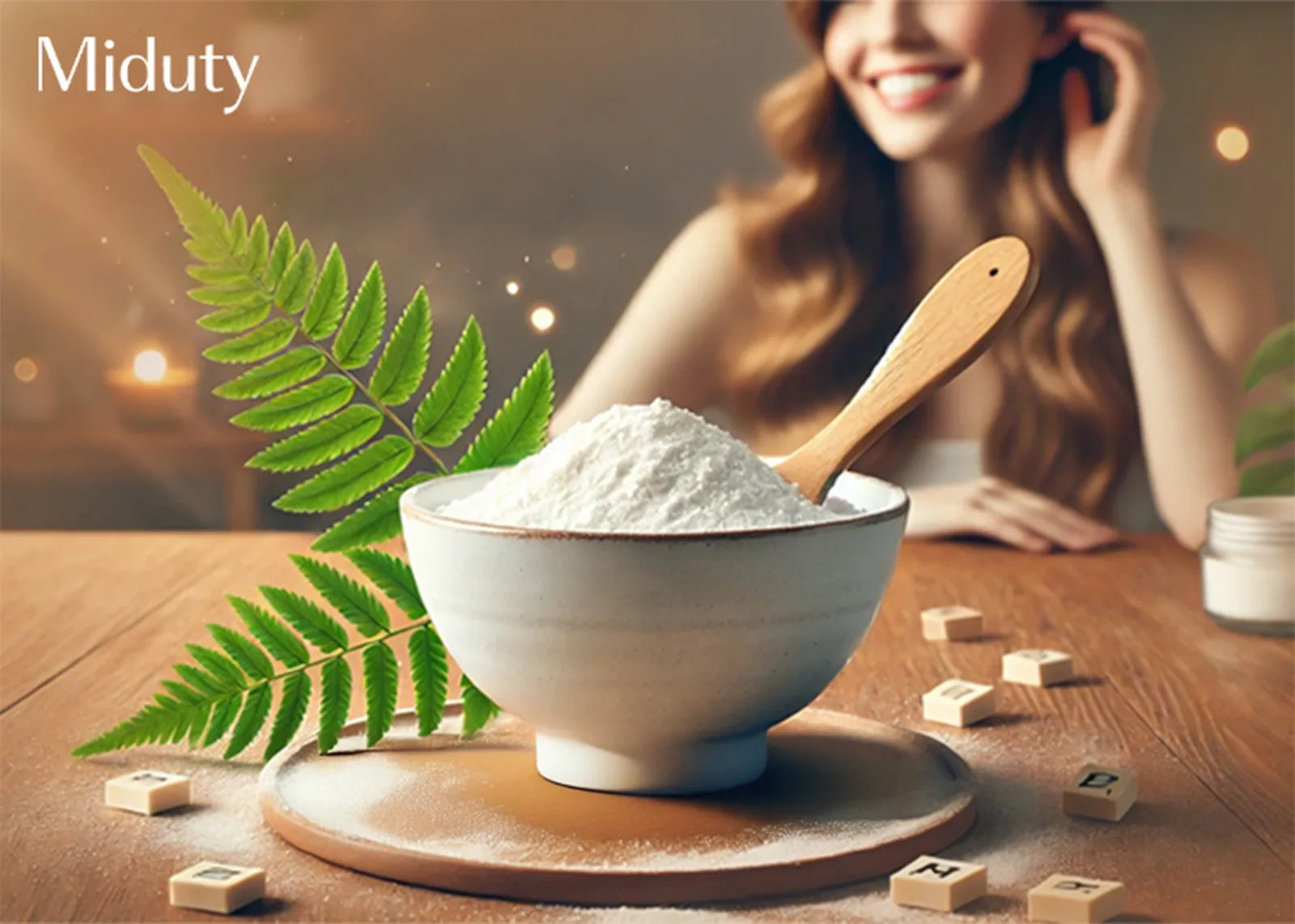
What is Spirulina? - Health Benefits, Side Effects, and How To Take It
Key Takeaways
1. One of the Oldest Life Forms: Spirulina is considered one of the oldest life forms on Earth, with fossil evidence suggesting it existed around 3.5 billion years ago.
2. Nutrient Powerhouse: Spirulina is considered one of the most nutrient-dense foods on the planet, containing up to 60-70% protein by weight, which is higher than most plant-based protein sources like beans or lentils.
3. Blue-Green Algae: Spirulina is a type of cyanobacteria, often referred to as blue-green algae, which grows in both fresh and saltwater environments.
4. Contains 9 essential Amino Acids: Spirulina contains all nine essential amino acids that the body cannot produce on its own, making it a complete protein source.
5. World Health Organization Endorsement: The World Health Organization (WHO) recognizes spirulina as a "superfood" and has recommended it for use in combating malnutrition, especially in regions with limited access to diverse food sources.

Have you ever scrolled through Instagram and seen influencers or health enthusiasts boasting about their vibrant green smoothies, claiming it's all thanks to spirulina?
Maybe you've spotted those glowing skin selfies or posts promoting energy-boosting supplements that shout, "I owe it all to spirulina!" Well, the buzz is real, and for good reason.
Spirulina, often hailed as a superfood, has been steadily rising in popularity as the go-to health supplement for those looking to boost their nutrition naturally. But what exactly is spirulina, and is it truly as magical as people make it sound?
In this blog, we'll dive deep into spirulina's health benefits, and potential side effects, and give you the lowdown on everything you need to know before adding it to your routine. Get ready to find out if this blue-green algae is as amazing as it seems!
Table of Contents
3. What are the Health Benefits of Spirulina?
4. What are the Side Effects of Spirulina?
5. How to Incorporate Spirulina into Your Diet?
6. Conclusion
8. References
What is Spirulina?
Spirulina is a type of blue-green algae that grows in both fresh and saltwater. It has been consumed for centuries, with ancient civilizations such as the Aztecs using it as a source of nourishment. Spirulina is rich in protein, vitamins, and minerals, making it one of the most nutrient-dense foods on the planet. It is typically available in powder, tablet, or capsule form, making it easy to incorporate into your diet.
What sets spirulina apart from other supplements is its impressive nutrient profile. It is high in complete protein (about 60-70% by weight), meaning it contains all nine essential amino acids. Spirulina is also packed with B vitamins, including B1 (thiamine), B2 (riboflavin), B3 (niacin), and B12, which are essential for energy production and brain health. Additionally, it contains important minerals like iron, magnesium, and potassium.
Also Read: What is Spirulina?: Top Spirulina Benefits for Health, Energy & Detox
What is Blue Spirulina?

While spirulina is typically known for its green color, blue spirulina is a recent variant that has gained attention due to its vibrant blue hue and slightly different nutrient profile. Blue spirulina, or phycocyanin-is a pigment extracted from spirulina, and it contains powerful antioxidants that give it its distinctive color.
Blue spirulina is not only a natural food colorant but also boasts numerous health benefits. Like green spirulina, it is rich in antioxidants, particularly phycocyanin, which has been shown to have anti-inflammatory properties.
Spirulina isn't just any superfood-it's NASA-approved! Astronauts use it in space for its nutrient power, while athletes swear by it for boosting energy, endurance, and recovery. Small but mighty, spirulina keeps you fueled like a pro.
Try Miduty's Blue Spirulina
What are the Health Benefits of Spirulina?
Spirulina has earned its reputation as a superfood due to its many health benefits. Let's break down some of the most significant ones:
|
Benefits |
Description |
|
Helps in ATP Production |
One of Spirulina's standout benefits is its ability to support ATP production, the energy currency of cells. Packed with B vitamins like thiamine (B1) and riboflavin (B2), Spirulina provides the essential cofactors for efficient cellular respiration, enabling the mitochondria to produce ATP. This boost in ATP synthesis translates to better energy levels, improved DNA and RNA synthesis, and enhanced cellular functions. |
|
Rich in Nutrients |
Spirulina is packed with essential nutrients that support various bodily functions. It is one of the best sources of plant-based protein, making it ideal for vegetarians and vegans. Additionally, it contains B vitamins (important for energy and brain health), along with vitamin C, vitamin D, vitamin E, antioxidants like beta-carotene, and minerals such as magnesium, iron, manganese, selenium, phosphorus sodium zinc, and calcium. [1] |
|
Supports Immune Health |
Spirulina plays a key role in boosting the immune system. It enhances the production of white blood cells, which help the body fight infections. The antioxidants found in spirulina also protect the immune system from damage caused by oxidative stress. [2] |
|
Detoxifying Properties |
Spirulina helps detoxify the body by binding to heavy metals and other toxins, facilitating their removal. It's especially beneficial for liver health and can aid in cleansing your body of harmful substances. [3] |
|
Muscle Strength and Stamina |
Due to its high protein content, spirulina is often used by athletes and fitness enthusiasts to support muscle recovery and increase endurance. It helps reduce fatigue and supports overall physical performance, making it an excellent addition to pre- or post-workout nutrition. [4] |
|
Supports Heart Health |
Spirulina has been shown to lower cholesterol levels, reduce triglycerides, and even help manage high blood pressure. By preventing the oxidation of LDL (bad) cholesterol, spirulina can help reduce the risk of heart disease and other cardiovascular issues. [5] |
|
Supports Brain Health |
The antioxidants in spirulina, especially phycocyanin, help protect the brain from oxidative stress, reducing the risk of neurodegenerative diseases. Regular consumption may also enhance cognitive function and memory. [6] |
|
Improves Sexual Health |
Spirulina can improve sexual health by enhancing libido, boosting energy, and improving sperm quality. Its rich nutrient profile, including zinc and essential fatty acids, promotes healthy hormone production, better circulation, and increased vitality. [7] |
|
Reduces Blood Sugar Levels |
Spirulina has been shown to help regulate blood sugar levels, making it beneficial for individuals with diabetes or those looking to prevent spikes in blood glucose. [8] |
|
Reduces Inflammation |
Spirulina has strong anti-inflammatory properties, which can help alleviate symptoms of conditions like arthritis, joint pain, and other inflammatory diseases. It can also help reduce muscle soreness after exercise. |
|
Anti Cancerous Properties |
Spirulina has demonstrated potential anti-cancer properties due to its rich content of antioxidants, including phycocyanin and beta-carotene. These compounds help neutralize free radicals in the body, which can damage cells and contribute to the development of cancer. Spirulina has been shown to reduce oxidative stress and inflammation, both of which are linked to cancer progression. [9] |
What are the Side Effects of Spirulina?
While spirulina is generally considered safe for most people, it's important to be aware of potential side effects and risks.
1. Common Side Effects
Some people may experience mild digestive issues when first introducing spirulina to their diet. These may include bloating, gas, or mild stomach discomfort. These symptoms usually subside as your body adjusts to the new supplement.
2. Toxicity and Contamination Risks
Spirulina can sometimes be contaminated with toxins, such as microcystins, which are produced by certain species of algae. This can happen if the spirulina is harvested from unregulated waters. It is crucial to buy spirulina from reputable sources to ensure it's free from contaminants. Look for products that are certified organic and tested for purity.
3. Who Should Avoid Spirulina
People with autoimmune conditions, such as lupus or multiple sclerosis, should avoid spirulina because it can stimulate the immune system and potentially worsen symptoms. Pregnant women or individuals taking medications like blood thinners should also consult their doctor before taking spirulina.
4. Proper Dosage
To avoid side effects, it's important to stick to the recommended dosage. For most people, a typical daily dose ranges from 1 to 3 grams, but higher doses may be safe under medical supervision. Always start with a smaller dose to see how your body reacts.
How to Incorporate Spirulina into Your Diet?

Spirulina is versatile and easy to add to your daily routine. Here are a few ways to include it in your diet:
1. Smoothies: Mix 1 teaspoon of spirulina powder into smoothies for a nutrient boost.
2. Capsules/Tablets: Spirulina tablets and couples are ideal for those who dislike the taste, these are convenient for daily intake, especially on the go.
3. Food Additions: Sprinkle spirulina on salads, soups, or smoothie bowls for easy incorporation.
4. Dosage: Start with 1 gram daily and gradually increase to 3 grams, adjusting to your tolerance. Use powder, capsules, or tablets based on preference.
Conclusion
Spirulina is an incredibly nutrient-dense superfood that offers a wide range of health benefits, from boosting immunity to supporting heart health. However, it's important to be aware of potential side effects, especially if you have underlying health conditions.
As with any supplement, it's best to consult with a healthcare professional before adding spirulina to your diet. When used responsibly, spirulina can be a valuable addition to your daily routine, helping you achieve better health and well-being.

Frequently Asked Questions on Spirulina
Q1: Is spirulina good for skin?
Yes, spirulina is excellent for skin health. Rich in antioxidants, vitamins (like A, C, and E), and essential fatty acids, spirulina helps protect the skin from oxidative stress, reduce inflammation, and promote hydration.
Q2: Can Spirulina darken hair?
No, spirulina does not darken hair. It may promote healthier hair by providing essential nutrients like vitamins, minerals, and amino acids that support hair growth and strength. While spirulina can improve hair texture and reduce hair loss, there is no scientific evidence to suggest that it darkens hair.
Q3: Is spirulina good for sperm?
Yes, spirulina is beneficial for sperm health. It is rich in antioxidants, amino acids, and essential nutrients like zinc and vitamin E, which help improve sperm quality, motility, and count. Some studies suggest that spirulina can help reduce oxidative stress and inflammation, which can positively impact male fertility.
Q4: How should I take Spirulina?
Spirulina can be taken in powder, tablet, or capsule form. It is typically consumed daily, either mixed into smoothies, water, or juice or taken as a supplement with meals.
Q5: Who should avoid taking spirulina?
People with autoimmune diseases, such as lupus or multiple sclerosis, should avoid spirulina, as it may stimulate the immune system. Additionally, those with phenylketonuria (PKU) or allergies to seafood or certain algae should also avoid spirulina.

References








